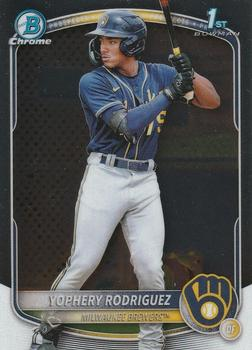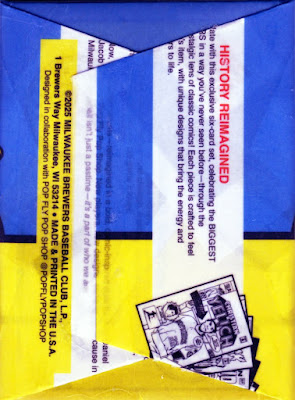Watching card content on social media and YouTube these days, I feel like a total Old Guy. So many folks got back into collecting during COVID--at the same time as I was sitting it out and trying not to get sick--that my having gotten back into the hobby initially in 2014 makes me feel like a veteran.
But I find myself now questioning how I organized things back in 2014. Perhaps that is because Topps started to issue so many sets, or more pointedly, so many parallels that trying to collect anything more than a few things is a fool's game. Or maybe I just want a new reason/excuse to go through my Brewers collection again.
Either way, I am thinking about reorganzing my Topps binders in particular as follows:
1. The "Flagship" binder: for use with the base Topps set and the Traded/Update set and perhaps other similar use of the flagship design (like 1st Edition or the 1994 Bilingual set).
 |
| 2012 Update Ryan Braun All-Star SP |
2. The "Tobacco" Binder: This one is for Topps 206, A&G, Gypsy Queen (RIP), Turkey Red, and other similar sets.
3. The 1990s Originals: An excuse to put Finest and Stadium Club (and their spinoffs) into their own binder together.
4. Chrome: For Chrome and its many, many variants.
 |
| Garrett Mitchell's 2023 Logofractor |
5.
Kid-Oriented: A place to put Topps Kids, Big League, Big, Fire, Holiday, Bunt, and Opening Day (RIP), among others

Some numbered to 99 Fire Variant from 2018
6. On Demand: Everything from Topps Now to Throwback Thursdays to the oversized moneygrabs to the Steve Aoki collaborations
7. Higher End: Things like Museum Collection, Tribute, Triple Threads, Sterling, Five Star, Inception, etc.
 |
| I couldn't leave this Aramis Ramirez Museum Collection Copper behind at a recent card show |
8. Archives: The binder for recycled Designs and the mixed retired player/current player sets of that ilk, like Heritage, Archives, Archives Signature Series, All-Time Fan Favorites, Cracker Jack, and anything similar
9. Regularly Revisited: Stuff like Gallery, Pristine, maybe Rookie Cup, maybe Topps Total, maybe High Tek--the sets that get issued maybe three or four years in a row, then go away, then return again in five or six years.
10. The One-Offs/Limited Runs: A parking lot to put the Yugos of Topps's history, like DIII, Embossed, Bazooka, Co-Signers, Ticket to Stardom, Unique, Attax, Legacy, American Pie, HD, Stars--things that were out for maybe 3-4 years at the most, perhaps consecutively, which are out there.
11. Oddballs/Food Sets/Promo Sets: Everything from Supers in the early 1970s to Scratchoffs in 1981 to the Drake's sets to the Post Cereal sets of the early 2000s to those bubble packed Team sets to the recent Baseball Card Day stadium giveaways.
 |
| This set helped set socks in 2019. |
The obvious point is that I can organize my cards in any way that I feel like organizing them. But I feel like I want the parallels and inserts to be with the base set from each year instead of being in different binders--that it would be easier to organize my collection in that way.
My question to you all--especially you team collectors--is this:
How do you have your cards organized? Binders? Boxes? By Player? By Manufacturer?
I'd love to hear how y'all do it.












































